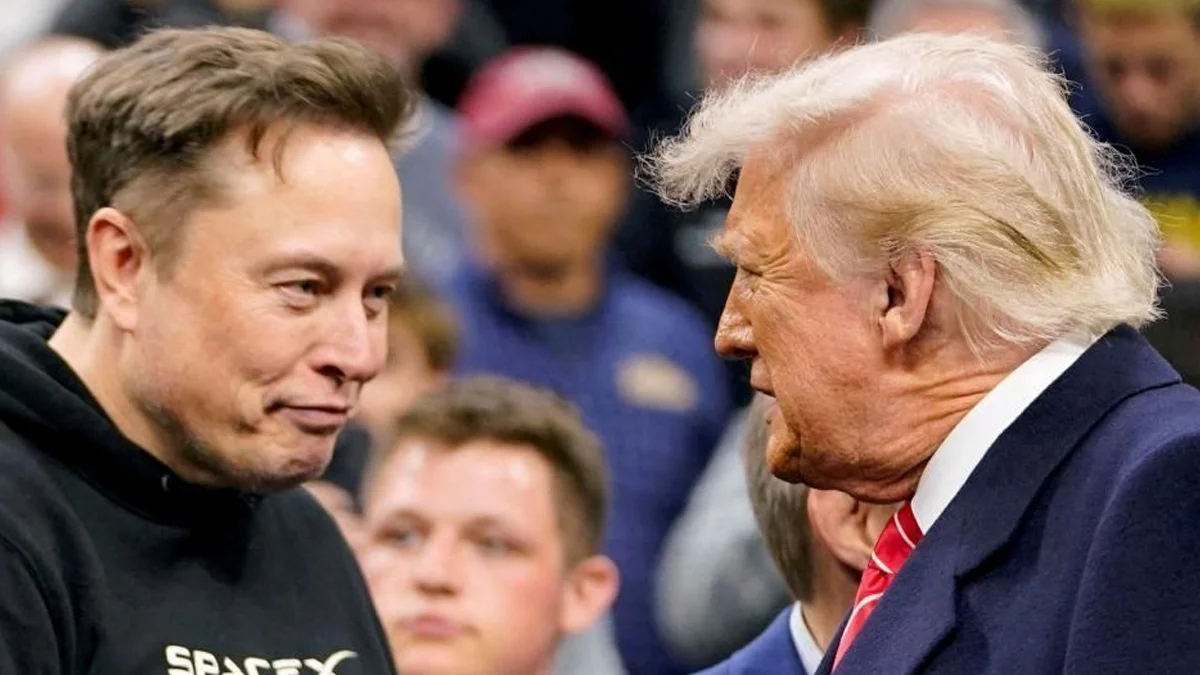Necessary Always Active
Necessary cookies are required to enable the basic features of this site, such as providing secure log-in or adjusting your consent preferences. These cookies do not store any personally identifiable data.
|
||||||
|
||||||
|
||||||
|

Tesla shares rose in US premarket trading on June 6 after tensions between President Donald Trump and CEO Elon Musk cooled off. The fallout between the two had caused a dip in the Tesla stocks that caused the market valuation of the EV maker to drop by $152 billion a day earlier, CNBC reported.
By 9am ET, Tesla premarket trading had pushed shares up by 5%. Analysts said that Trump had scheduled a call with Musk on Friday to broker a truce.
“Musk needs Trump and Trump needs Musk for many reasons and these two becoming friends again will be a huge relief for Tesla shares. We will be monitoring the situation closely today but we believe Tesla shares are way oversold on this news,” Wedbush Securities Analyst Dan Ives said.
In recent days, Musk and Trump have engaged in a war of words as the Tesla CEO’s tenure at the Department of Government Efficiency (DOGE) ended last week. DOGE was established by the Trump administration to reduce costs within federal government agencies. Initially, Trump praised Musk for his handling of the department.
But his tone changed on June 5 after Musk criticized Trump’s spending bill which proposes sweeping taxes and public spending cuts. In a post shared on X, Musk called the ‘big, beautiful, big’ a ‘disgusting abomination’ that will burst federal budget deficits.
“I’m sorry, but I just can’t stand it anymore. This massive, outrageous, pork-filled Congressional spending bill is a disgusting abomination Shame on those who voted for it: you know you did wrong. You know it,” The Tesla CEO posted.
Musk further added that the bill “will massively increase the already gigantic budget deficit to $2.5 trillion and burden America citizens with crushingly unsustainable debt.”
The feud between Musk and Trump escalated on June 5 after Trump responded directly to Musk’s criticism. In his post, Trump claimed that Musk was angry due to the exclusion of the $7,500 EV tax credits in the spending bill.
Musk responded fast to the president’s post in a sharp tone saying, “Without me, Trump would have lost the election. Dems would control the House and the Republicans would be 51-49 in the Senate.”
Musk also called for Trump’s impeachment, claiming that the president ‘is in the Epstein files’.
Responding to Truth Social, Trump said, “The easiest way to save money in our budget, billions and billions of Dollars, is to terminate Elon’s Governmental Subsidies and Contracts. I was always surprised that Biden didn’t do it!”
Some analysts think the feud may not have a lasting impact. “Those are obviously threats that are unlikely to come into fruition. I don’t expect this to blow out into anything more serious than a war of words for a couple of days,”City Index Analyst Fiona Cincotta said.
Musk’s public clash with Trump poses several hurdles from his large business empire, including SpaceX and Tesla. The EV maker is preparing to launch its much touted robotaxi service later this month.
With the US Department of Transportation regulating car design standards, it will have a say on whether the company can mass-produce self-driving vehicles without steering wheels and pedals. Analysts think it might be too late to restore the relationship between Musk and Trump. However, easing tensions will boost Tesla stock performance.
“It might be a bit too hopeful to think their relationship will ever go back to what it once was, but if cooler heads prevail and the tension eases, that would definitely be a big improvement for Tesla,” Hargreaves Lansdown Analyst and Tesla Shareholder Matthew Britzman said.
Earlier this week, Musk had said that the bill undermines DOGE efforts. On June 3, White House spokesperson Karoline Leavitt said that President Trump was aware about Musk’s stand on the bill but that did not change his opinion on it. Leavitt also took a swipe at the Congressional Budget Office for stating that the bill will increase the deficit by $3.8 trillion in the next decade.